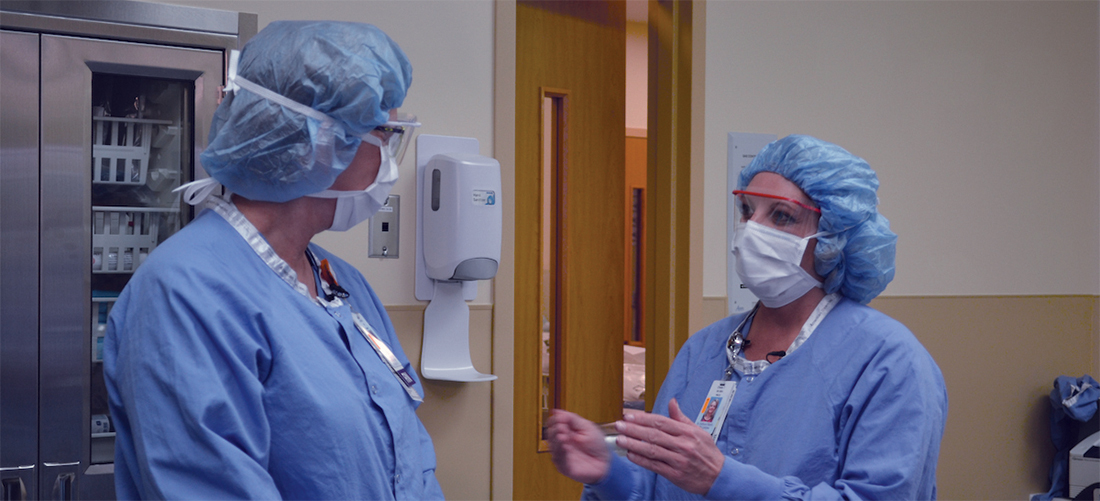4 Ways to Prepare for Your First Nurse Leadership Role
By: Aorn Staff
Published: 4/6/2022
4 Ways to Prepare for Your First Nurse Leadership Role
A Conversation with Megan Nolan, BSN, RN, CNOR

Stepping up from a staff nurse position to a clinical coordinator role has been a unique experience—it’s been challenging, fulfilling, and packed with personal and professional discovery. At two years into my first nursing leadership position, I have a fresh perspective on who I am, what my team needs, and what it takes to be a perioperative leader.
Learning to Lead
My favorite part of being a nurse leader is the opportunity to help my staff nurse colleagues develop their professional interests, grow professionally, and contribute to our close-knit team. Making this transition from being an individual contributor to my role as supporting others in their role has been my toughest learning curve. I’ll be honest, some days I feel like an awkward teenager as I navigate the new social rules of having your colleagues look to you for guidance and support. I’ve learned that it’s okay to feel uncomfortable as a leader sometimes because there are aspects of the job you can only learn in the position.
Having said that, there are a few important skills I wish I had practiced more before I jumped into my clinical coordinator position.
Preparing for Your Leadership Role
To all aspiring perioperative nurse leaders, here is my advice on what skills and nurse leadership qualities to cultivate before you step into your new leadership role.
1. Increase Capacity—Leadership brings additional responsibility. Look for ways to take the lead on projects and think about activities or volunteering outside of work that will develop your ability to balance more.
2. Master Time Management—Being a leader means managing competing demands for your time. Take time now to sharpen your skills for managing yourself, handling your calendar, keeping up with deadlines, and creating space to reflect on your long-term goals.
3. Look at the Bigger Picture—Beyond daily operations, a leader is responsible for looking toward the future. Find ways to help your team achieve short and long-term goals, such as improving safety, educating on better practice, improving a staffing model, or building a team vision.
4. Own your emotions—As a leader, I realize my emotions and non-verbal language have a huge impact on my team. This has required a new level of self-awareness, but it has also given me a reason to always strive to be my best self for my team.
Looking to learn from other nurses new to the leadership role and experienced executives? Make plans to attend the AORN Leadership Summit, taking place at AORN Expo 2019 in Nashville, TN, April 7-10. New this year, the conference will offer a unique track for emerging leaders looking to develop their management and business skills.
Megan Nolan, BSN, RN, CNOR is a Clinical Coordinator in the Cardiac Operating Room at Boston Children’s Hospital.

